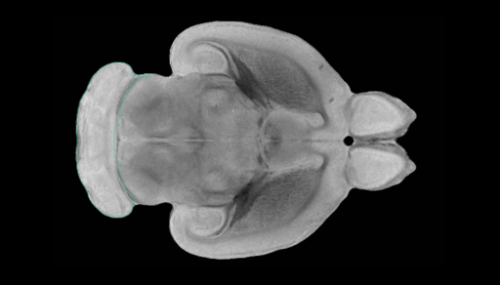Researchers successfully repair stroke-damaged rat brains

Researchers at Lund University in Sweden have succeeded in restoring mobility and sensation of touch in stroke-afflicted rats by reprogramming human skin cells to become nerve cells, which were then transplanted into the rats' brains. The study has now been published in the research journal PNAS.
"Six months after the transplantation, we could see how the new cells had repaired the damage that a stroke had caused in the rats' brains," says Professor Zaal Kokaia, who together with senior professor Olle Lindvall and researcher Sara Palma-Tortosa at the Division of Neurology is behind the study.
Several previous studies from the Lund team and others have shown that it is possible to transplant nerve cells derived from human stem cells or from reprogrammed cells into brains of rats afflicted by stroke. However, it was not known whether the transplanted cells can form connections correctly in the rat brain in a way that restores normal movement and feeling.
"We have used tracking techniques, electron microscopy and other methods, such as light to switch off activity in the transplanted cells, as a way to show that they really have connected correctly in the damaged nerve circuits. We have been able to see that the fibres from the transplanted cells have grown to the other side of the brain, the side where we did not transplant any cells, and created connections. No previous study has shown this," says Zaal Kokaia, who, even though he and colleague Olle Lindvall have studied the brain for several decades, is surprised by the results.
"It is remarkable to find that it is actually possible to repair a stroke-damaged brain and recreate nerve connections that have been lost. The study kindles hope that in the future it could be possible to replace dead nerve cells with new healthy nerve cells also in stroke patients, even though there is a long way to go before achieving that," says Olle Lindvall.
The researchers have used human skin cells that have been reprogrammed in the laboratory to become nerve cells. They were then transplanted into the cerebral cortex of rats, in the part of the brain that is most often damaged after a stroke. Now the researchers will undertake further studies.
"We want to know more about how the transplanted cells affect the opposite hemisphere of the brain. We also want to take a closer look at how a transplant affects intellectual functions such as memory. In addition, we will study possible side effects. Safety is, of course, extremely important for cell transplantation if it is going to be used clinically in the future," says Zaal Kokaia.
More information: Sara Palma-Tortosa et al, Activity in grafted human iPS cell–derived cortical neurons integrated in stroke-injured rat brain regulates motor behavior, Proceedings of the National Academy of Sciences (2020). DOI: 10.1073/pnas.2000690117













